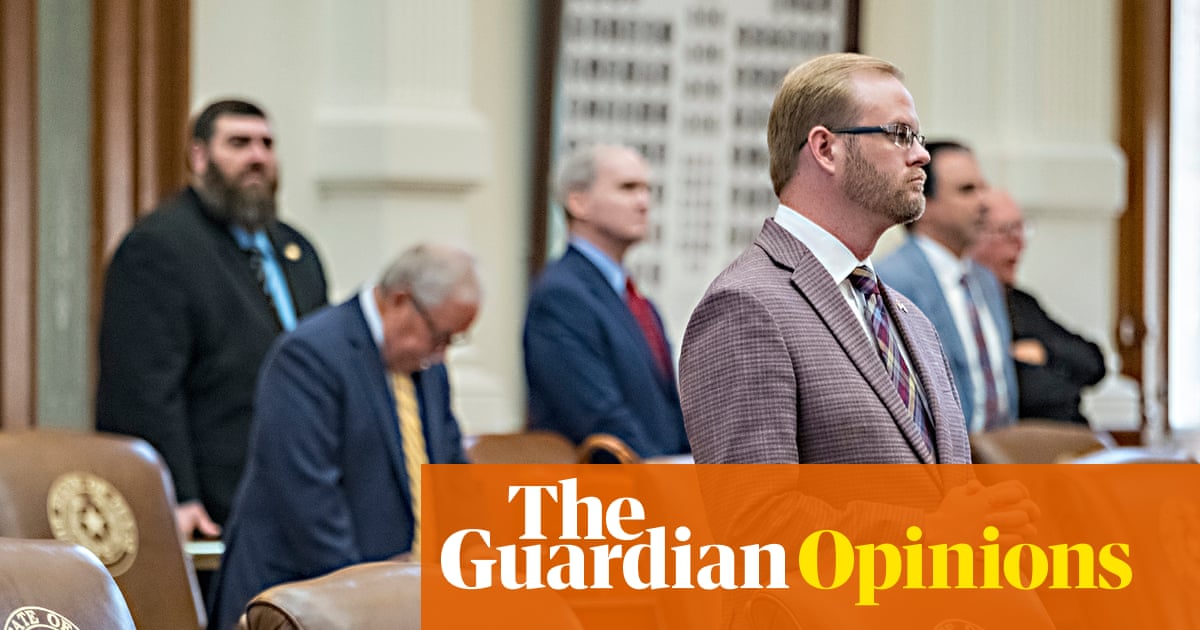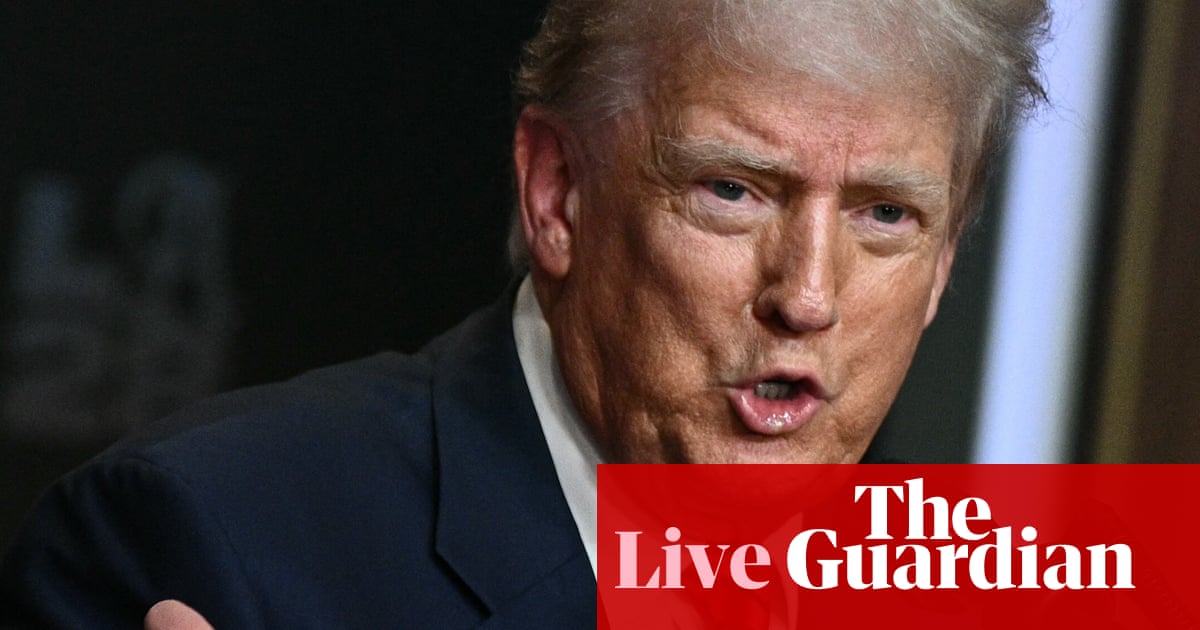I was born on 24 June 1946, 10 days after the birth of Donald John Trump, 12 days before the birth of George Walker Bush, and 56 days before the birth of William Jefferson Blythe III, whose name was later changed to Bill Clinton.
I did not become president. but among my earliest memories is my grandmother, Minnie Reich, telling me that I would become president. I think she was trying to reassure herself that despite my being a runt, fully a head shorter than other little boys, I’d make her proud.
When Trump first ran as a candidate for president in 2015, I viewed him as an anomaly, a cartoon caricature of a con man trying to gain political power. He spent most of his life bullying others – employees, contractors, vendors, women, tenants, lawyers, bankers, politicians, producers. He was and is a bully’s bully – vulgar, chaotic, angry, uninformed, impulsive, vindictive.
I have seen the harm bullies cause, and I have spent much of my life trying to stop them. I fought schoolyard toughs who teased and harassed me for being short. I was protected by a teenager who subsequently was murdered by the Ku Klux Klan for trying to register Black voters in Mississippi. I marched for civil rights, protested the Vietnam war, and worked to elect Minnesota senator Eugene McCarthy, the anti-war candidate for president. As labor secretary to Bill Clinton, I tried to protect workers who were bullied by employers.
I always believed America was not a nation of bullies. We protected the vulnerable, comforted the afflicted, gave refuge to those fleeing violence and persecution, and gave voice to those who otherwise would not be heard. I found these ideals in the declaration of independence, the constitution and the Bill of Rights, Lincoln’s Gettysburg Address, Emma Lazarus’s poem affixed to the Statue of Liberty, FDR’s second inaugural address, and Martin Luther King Jr’s “free at last” sermon at the 1963 March on Washington.
My parents and grandparents espoused these ideals and my teachers expounded them, connecting me with previous generations of Americans and the sacrifices they endured to preserve our democracy and achieve a greater good. Throughout my lifetime I cherished these ideals and hoped to pass them on.
When I was secretary of labor, I had an office near the US Capitol from which I had a closeup view of the Capitol building’s large, majestic dome. When I worked late, which was most nights, I’d look up from my desk and see its hulking beauty lit up like a great monument to the idea of American democracy. I was often exhausted, sometimes discouraged, but the sight of that great dome filled me with the sense that I was taking part in something hugely important. It seemed to illuminate everything I was trying to do and vindicate the frustrations I felt, trying but often failing to keep the economic bullies at bay.
Yet Trump was elected president in 2016 and then – after losing re-election in 2020 and encouraging a coup and an attack on the US Capitol, on US democracy itself – he was re-elected in 2024. And on 20 January 2025, he took the oath of office for a second time, right under the great dome of the Capitol.
I asked myself how a plurality (albeit a razor-thin one) of American voters could possibly choose to put him in the Oval Office again and trust that he would abide by his oath when he betrayed it the first time.
There are many explanations, but for me the most convincing began to unfold more than four decades ago when I noticed that most Americans’ incomes were flattening even though the economy continued to grow. Since then, the lion’s share of economic gains has gone to the top.
Most Americans, especially those without college degrees, have felt very little improvement in their lives and their jobs have grown less secure. Vast swathes of the country have been abandoned by industry.
The basic bargain used to be that if you worked hard and played by the rules, you’d do better, and your children would do even better than you. But since the late 1970s, that bargain has become a sham. The middle class has shrunk. About $50tn has been siphoned from the bottom 90% of Americans to the richest 1%.
Many Americans feel frustrated and angry. Trump gave voice to that anger, although he directed it at scapegoats who did nothing to cause it – undocumented workers, the “deep state”, transgender people, “communists” and Democrats. And he did nothing whatsoever to address the underlying cause. In fact, he gave two big tax cuts to the wealthy.
Through these years, I watched as other Republican presidents also cut taxes on the wealthy, arguing that the government should allow the so-called “free market” to operate without constraint – perpetuating the “trickle-down” myth that great wealth in the hands of a few will benefit the many as the rich make the nation more productive. But as I came to understand, the “free market” is a misnomer and little or nothing has trickled down.
Meanwhile, I watched Democrats abandon the working class. John F Kennedy was the last Democratic president to depend on the votes of working-class Americans while losing the votes of white, college-educated Americans by two to one. Sixty years later, Joe Biden depended on the votes of college-educated Americans while losing the votes of the white working class by two to one. Kamala Harris lost the working class by an even larger margin.
I saw Democratic leaders embrace free trade. I witnessed them deregulate finance and allow Wall Street to become a high-stakes casino.
I was there when they let big corporations gain enough market power to keep prices and profit margins high. I saw them look away when corporations busted unions and slashed payrolls.
I had a front-row seat when they bailed out Wall Street because its gambling addiction threatened to blow up the entire economy, but they never bailed out homeowners who lost everything. I saw them welcome big money into their campaigns and deliver quid pro quos that rigged the market in favor of big corporations and the wealthy.
To his credit, Joe Biden redirected the Democratic party back toward its working-class roots, but many of the changes Biden catalyzed were easily reversed. Kamala Harris’s brief, bright campaign had enormous energy but was on a perilously short runway, and she was not able to address why so many Americans were working harder than ever yet still struggling economically.
Over the decades, I urged Democratic candidates and lawmakers to tell Americans why their pay continued to be lousy and their jobs less secure: certainly not because of immigrants, the “deep state”, transgender people, “communists” or any other bogeyman, but because of the power of large corporations and the rich to rig the market and siphon off much of the economy’s gains.
I asked Democrats to stop doing the bidding of big corporations and the wealthy and instead champion the working class: demand paid family leave, Medicare for all, free public higher education, stronger unions, and higher taxes on great wealth, and create the biggest boom in residential home construction since the second world war.
I argued that corporations must share their profits with their workers and limit CEO pay, that stock buybacks should be illegal, that corporate welfare (subsidies and tax credits unrelated to the common good) should be stopped and giant corporations busted up.
I warned that widening inequality and the corruption that accompanied it would eventually invite a demagogue who’d exploit the powerlessness and rage of Americans who felt economically bullied.
It’s possible that the arguments I’ve made over the decades have been wrong and my warnings alarmist. But they have been based on what I have seen and experienced. And now that the nation has re-elected exactly the kind of demagogue I portended, there is added urgency in reversing the staggering inequalities and legalized bribery that characterize today’s America.
I love America and am proud of much that this nation has accomplished over my lifetime. I remain doggedly hopeful about the long-term future. But, undeniably, we and much of the world now face a brutal set of crises, headed by the decline of democracy and deterioration of the rule of law.
A previous generation won the second world war and created the most powerful economy and strongest democracy the world had ever seen, populated by the largest and most prosperous middle class in history. My generation and I then failed to create the decent, sustainable and just society that was within our grasp.
In this regard, I’m sorry to say, we all came up short.
Adapted from Robert Reich’s book Coming Up Short: A Memoir of My America, out on 5 August. Copyright © 2025 by Robert B Reich
-
Robert Reich, a former US secretary of labor, is a professor of public policy emeritus at the University of California, Berkeley. He is a Guardian US columnist. His newsletter is at robertreich.substack.com

 German (DE)
German (DE)  English (US)
English (US)  Spanish (ES)
Spanish (ES)  French (FR)
French (FR)  Hindi (IN)
Hindi (IN)  Italian (IT)
Italian (IT)  Russian (RU)
Russian (RU)  3 hours ago
3 hours ago
























Comments